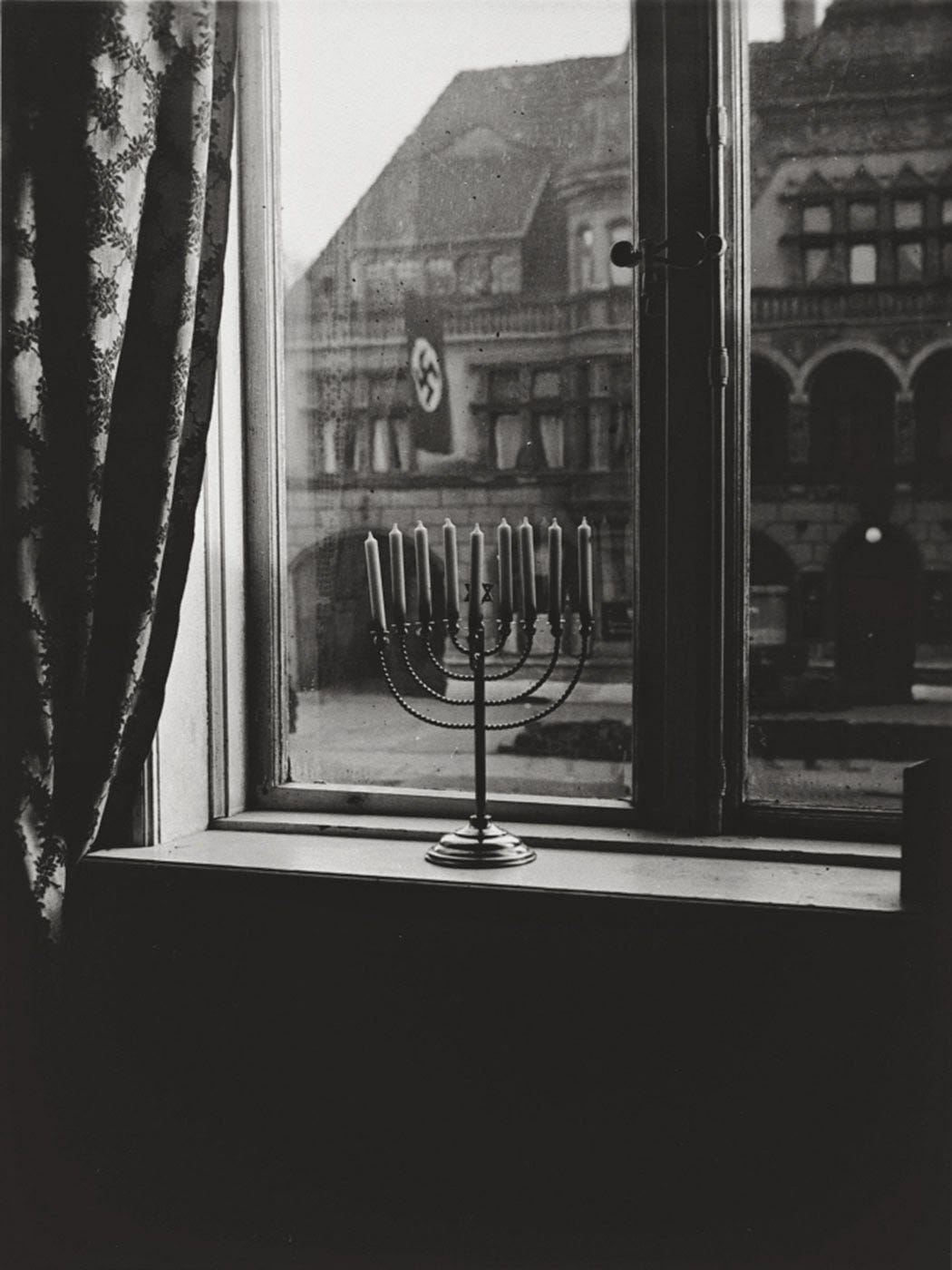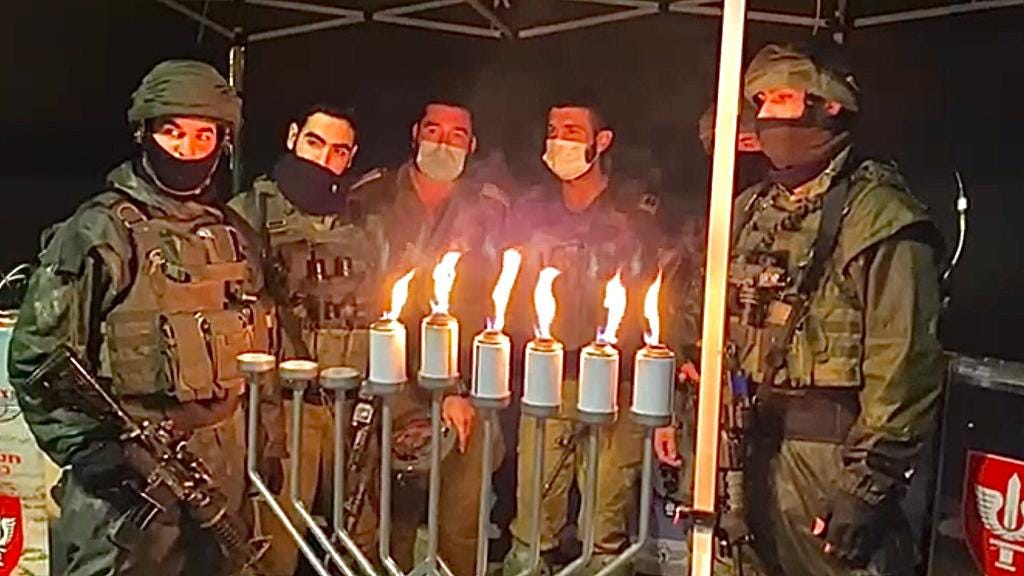Ma’oz! zur yeshu’ati!
Tonight is the first night of Chanukah. And the second Chanukah that they are still not home. It has been 446 days.
Stronghold! The rock, my rescuer!
To whom praise is proper.
Fix up my house of prayer –
And there, a thanksgiving we’ll offer.
When you prepare to slaughter
That barking oppressor,
I’ll end all time,
with song and rhyme,
Inauguration of the altar.
I remember that whenever my grandfather was with us for Chanukah, he would light an additional candle, a yahrzeit candle, “for his father,” he would say. I never asked more questions: was his father killed on Chanukah? How would he even know? Or was that the day when they were separated? Or was Chanukah not the actual date at all? I didn’t ask, but I have a feeling he’d say it doesn’t matter.
My soul had its fill of evil,
My strength sapped by sorrow.
My life was embittered by toil
As slave to the kingdom of Pharaoh.
God’s almighty hand let go
His treasure below.
Pharaoh’s troops,
All his family groups,
Sank like stone to the waters below
Jewish history, or perhaps more properly, Jewish memory, is long and full of tragedies. There are points of light too, of course. God Himself came to intervene in spectacular fashion, after generations of brutal slavery. We won that round, in the end.
To His holiest sanctum He brought me
But even there I was unsteady.
The tyrant came and exiled me
For I had served idolatry.
Poison wine I did pour,
Almost became no more,
But after Bavel –
Zerubavel!
At the end of seventy – I was free!
The appeal to Jewish memory is as old as the Jews; they were eating matzah to remember the redemption from Egypt while they still sat there, their last night in the land of slavery, feasting on matzah with their sacks packed and ready to go on the long winding road towards an uncertain future. The highlights and lowlights, the hills and the valleys, they always seem coupled close together on this historical terrain. Yet somehow, even when looking at them from a great distance of millennia, they don’t average out.
To cut down the pine’s great height
sought Haman the Agagite.
You, God, set the trap tight
His haughtiness You did smite.
You raised up Mordechai the Yemini
Erase the enemy’s name you decreed –
His many sons
And hired guns
You hanged them all upon the tree.
Tonight I stand by my son as he lights the Chanukah candles, keeping close as he holds a flame. He also holds my grandfather’s name, and especially in flickering candlelight, he looks remarkably like him. It makes it so easy to imagine my grandfather at exactly my son’s age, lighting candles beside his father, for what would have been the last time.
I was trampled by the Greeks
Before the Hasmoneans reigned.
My sacred tower walls they breached
And all the pure oils stained!
Yet from the last remaining cruse–
A miracle for the Jews!
The wise appraised
That for eight days
Song and cheer be ordained.
We sing songs about the Maccabees, their heroism and triumph. But what did they sing, those sons of Matityahu back at the first Chanukah, when they lit their makeshift Menorah,1 a slapdash imitation of the real thing? Could they have sung of victory, with so many battles still yet to come? As brightly as their hope may have shined, their outcome against the Seleucid empire was uncertain. Perhaps they sang anyway, knowing that no matter who would win the battle, a day would come when the Jews would reign again.
Extend now your holy hand,
Advance the end, the salvation.
Avenge the blood of your servants’ stand
From the wicked nation.
For time just continues to extend,
And the bad days seem to never end.
Shove away the red
With the shadow of the dead
Let our seven leaders reawaken.
Even today the battles continue, the dangers just as real, we count the days one by one and they seem to go on without end. But we are still here, and have seen flickers of light, God showing us small candles in the darkness, leading us towards home. My son’s name, the one he shares with my grandfather, is יאיר, based on the Hebrew word for light. But it is conjugated in the future tense. Dear God, let there be light!
It’s not so clear just how slapdash the Menorah was. See Megillas Taanis (ed. V Noam, p. 105), Talmud Bavli Rosh Hashanah 24b, Avodah Zarah 43a (and Tosafos R. Isaiah Trani there), Menachos 28b




